home | internet service | web design | business directory | bulletin board | advertise | events calendar | contact | weather | cams

|
Winthrop Town Council members are elected as non-partisan officials and serve four-year terms. They’re paid $65 per meeting and are not paid if absent. The council meets every first and third Wednesday at 7 p.m. in the Hen House meeting room in back of The Barn. 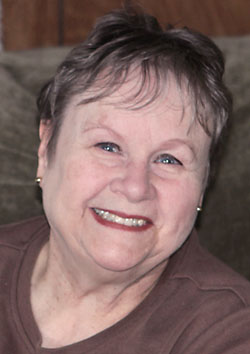 Gaile Bryant-Cannon Gaile Bryant-Cannon
With the exception of one year, GAILE BRYANT-CANNON, 70, has spent the last 20 years on the Winthrop Town Council. “I took one year off. I was just burned out,” she says. She originally decided to run for office because “I needed an outlet, something to be involved in,” Bryant-Cannon says of her service to the town’s citizens, many of whom remember her as a checker at the local grocery store. Born and raised in Seattle, she graduated from Cornish College of the Arts with a degree in interior design but went to work in the wholesale optical industry, where she managed a frame department. Attracted by fishing and hunting opportunities, she and her former husband moved here with her step-son in 1982. They managed the Pine-Near RV Park for 10 years. “Everybody works in the valley just for the privilege of being here,” she says. Being a Winthrop council member means looking out for the needs of two constituencies, says Bryant-Cannon -- town residents and the tourists who pay an important share of the town’s bills. The council now is struggling with the worst budget shortfall in her time on the council, Bryant-Cannon told Grist. She says the depressed tourist economy, the economic lifeblood of the town, is a major contributing factor. To help make ends meet and to find a badly needed new home for the town marshal, “It would be wonderful if we could divest ourselves of some of this property we own,” says Bryant-Cannon. The town owns a storefront where the old town hall was along the boardwalk downtown as well as the fire station used by Okanogan County Fire District 6, which hopes to build a new station. “I’d love to be able to move the police department into it,” she says of the current fire house. The fire district recently asked the town for more money for its contracted fire services. “We can’t afford to give them anything,” says Bryant-Cannon. “Where is the money going? They need to tighten their belts like we have to.” That issue became moot for the moment, at least, when fire district chairman Roy Reiber on Nov. 15 informed Mayor Dave Acheson that the district was withdrawing its request for more funding for 2013. Bryant-Cannon, who was not present for the final vote, says she had been inclined - in the name of equal treatment - to approve the request by all-terrain vehicle enthusiasts to drive through Winthrop on Highway 20, which otherwise is against state law. But when she read the manufacturers’ specifications for the vehicles, she says she discovered “They are not made for road use.” According to the manufacturers’ own specifications, the machines lack the braking systems that would make them safe for road use, says Bryant-Cannon. As for the controversy with Fog Horn Ditch officials over extension of the Susie Stephens Trail, Bryant-Cannon says, “I certainly understand their concern.” But she’s been puzzled by the stand-off and says she wonders if the 55 ditch owners are being fully informed about the issue. “The town has always had a hand out and been open to them,” Bryant-Cannon says. Her term ends Dec. 31, 2015. 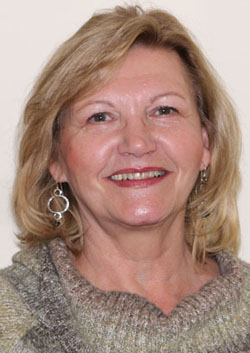 Sue Langdalen Sue LangdalenSUE LANGDALEN, 62, served one term as Winthrop mayor starting in 2002. “It was enough, I had done my duty,” she told Grist. Yet she applied to fill a vacancy on the council when Lance Christensen resigned, and she’s been serving since Oct. 1 of this year. “I felt I had a good enough background to do it,” she says of the council appointment. “I do want to do it,” she adds about involvement in town government. “But not as a mayor, though.” Her term expires Dec. 31, 2013. Langdalen, a former assistant buyer for Nordstrom who has been a teller at Farmers State Bank for the last 27 years, first moved to the valley from Seattle in 1972 with her husband, Jim, a descendant of the Zemke family that arrived in the valley in 1910. “We lasted about a year the first time we came up,” she says. “When we came back the second time, it was for the kids,” Langdalen says, explaining that Seattle had embarked on its school busing program to desegregate schools by mandatory busing of students out of their neighborhoods. Back in the valley, she at first worked as a waitress and a part-time town clerk. “I love it. It’s very relaxed,” Langdalen says about life in Winthrop now. “You appreciate things a lot more.” During her time as mayor, “When we did the budget, we knew we didn’t have to worry,” Langdalen says. But now the budget is the biggest single challenge facing the council, she adds. “We need our tourists. We can’t let go of them,” says Langdalen, who adds that she’s concerned that the town remain true to its Westernization program. “I’d like to see Winthrop just like Leavenworth,” she says. “Stay within the Westernization guidelines.” And, she added, “People need to know where the town stands with Westernization.” The troublesome Fog Horn Ditch issue had not come to the forefront when she was mayor, says Langdalen. “I’m surprised they didn’t come forward sooner.” The trail’s route was chosen after a public process in 1998, according to town officials. 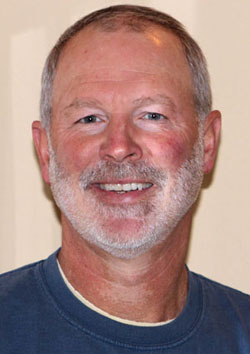 Rick Northcott Rick NorthcottRICK NORTHCOTT, 55, hails from valley homesteaders. Born in Brewster, raised in Kent, he graduated from Kent-Meridian High School, as did Mayor Acheson. A general contractor on the west side for many years, Northcott moved to the valley in 2002. His father, Melvin, was elected mayor of Twisp but died three months into his term; his grandfather Jim LeMaster, was elected mayor of Winthrop in 1913. Asked why he decided to run for public office, Northcott cites the example of his father, who he thought was “crazy” for running for office. But he concluded that “if he had the gumption, maybe I’ll try it.” Asked if he intends to follow family tradition and run for mayor himself when Acheson’s term ends, Northcott answers that he was unaware that Acheson has said he won’t seek another term. “I don’t plan on running for mayor but strange things can happen,” he says. “I’m not ruling it out.” His council term ends on Dec. 31, 2013. The thing that most surprised him when he joined the council in 2006, Northcott says, was that “the planning and comprehensive plan had not been updated.” The planning commissioners, appointed by the council and mayor, are unpaid volunteers asked to do “a big job” on their own time, adds Northcott. But to avoid replays of past development controversies, he says it’s important that updated regulations be put in place to guide development. The fire district’s request for a raise didn’t sit well with Northcott. “It makes no sense that we should be paying the same as other people in the district,” says Northcott, since the town furnishes the fire station, a fire engine, water and infrastructure. Northcott adds that without seeing the district’s budget, he can’t tell if the request was triggered by poor planning, by fire district officials or if the money is to be spent on equipment or wage increases. The mostly-volunteer fire district now has four full-time, paid firefighters, and Northcott argues that Winthrop townspeople never voted on whether the district should be paying for the services of professional firefighters. Under state law, fire districts are independent of other government entities and answer only to voters. Northcott is one of the 55 irrigators on the Fog Horn Ditch. Asked if he feels he’s been kept fully informed by ditch officials about the impasse with the town over the Susie Stephens Trail extension, he answers, “I’m comfortable with what they’re doing. The ditch has been here a lot longer than the Susie Stephens Trail.” He’s troubled that the town seems to have proceeded with its plans for building the trail without getting approval of the ditch, the biggest landowner along the trail, Northcott says. He himself was approached by the town to let the trail cross his property but he declined. “Why should I do that? That [land] could possibly be my retirement.” As for Westernization, Northcott says he thinks it’s generally a good thing for the downtown hub but less so for the area south of downtown along Highway 20 where he lives. He cites as an example the rule that satellite dishes should not be visible from the road, a restriction that he argues can hamper certain businesses. “There are a lot of things [necessary for life in 2012] that don’t fit 1890,” says Northcott. 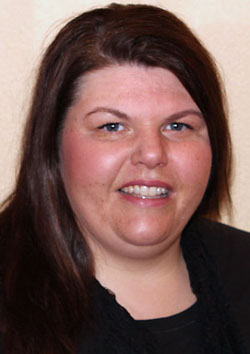 Tiffany Langdalen Tiffany LangdalenTIFFANY LANGDALEN, 36, is the younger half of the council’s mother-daughter team. She says she was inspired apply to fill a vacancy because she felt the council needed younger voices, not just those of people “who are my parent’s age group.” Her term expires at the end of 2013. A Liberty Bell High School graduate and beautician trained at Gene Juarez Beauty School in Seattle, Langdalen is owner of Courtyard Salon. She says that even though she and her mother live in the same house, they’re too busy to find time to talk about council business. And though they both stress the importance of adhering to the town’s Westernization code, Langdalen says she and her mother sometimes vote differently, as when they favored differing approaches on retaining the town’s building inspector at a time of budget cutbacks. Those cutbacks, she says, are especially difficult because they involve reducing pay or benefits for valued employees. “I feel like the economic downturn finally caught up with us,” she says. The town “got shafted” by the county in the all-terrain vehicle controversy, argues Langdalen. “I think the county should have been the leader” on the issue instead of first sending the ATV enthusiasts to get approval from the towns of Winthrop and Twisp before designating its own routes. Even so, she says, she might have voted for a “trial period” if she felt that’s what townspeople wanted. But she says only one person mentioned that possibility to her; all the rest who spoke with her about it were against the ATVs, she says. Langdalen adds that she tried to ascertain “what was their vested interest” in the issue when people lobbied her -- whether they lived in town, the county, or had a business interest at stake. She’s enthusiastic about someday having the town complete the long-dormant River Walk project downtown. It would be “beautiful” and a benefit to business owners such as herself, she points out, since customers could approach businesses from either the river side or the street side. Langdalen says she does not want to comment on the Fog Horn Ditch controversy because she is still trying to sort out what has been going on over the years with that project. The fire district’s request for a 20 percent increase came when “we’ve been agonizing over the budget as it was,” she says. “We’re definitely not on the same page.” Winthrop is a “gem of a town,” says Langdalen, and both the local recreation offerings and the draw of the Westernized town are important for Winthrop’s future. And even though she laments the relaxation of Westernization standards in signage and paint, she adds, “I don’t think that recreation is overtaking the town.” 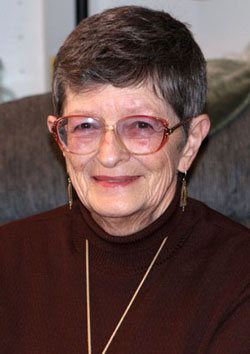 Mort Banasky Mort BanaskyWith a quarter century of service, including a one-year stint as mayor in 1992-93, MORTEE (MORT) BANASKY, 72, is the council’s longest serving member. She first arrived in the valley in 1984 to take a job as a fire lookout on First Butte for the U.S. Forest Service. “I’ve been in love with mountains for years,” she explains, and was delighted to learn that “someone would pay you to sit on a mountaintop.” Born in Seattle, Banasky lived in Walla Walla as a small child. Her father was a Christian Science practitioner who ministered to inmates in the prison. She quit school to go to work before graduating from high school but eventually got her GED. She attended Los Angeles City College and then the University of Washington, which is where, as a 42-year-old student looking for a summer job, she saw the ad for fire spotters. She never went back. Soon Mayor Warren Badger talked her into applying for a vacancy on the council, arguing that her experience as a liability underwriter in the insurance industry would be helpful on the council, she says. “I’m a masochist,” Banasky jokes about her decades of service to the town. “I care about the valley,” she adds, and being on the council is the way she can contribute to the community. Divorced, she’s the mother of two sons and several grandchildren who live out of state. As a council member, Banasky says she’s aware that there’s sometimes a “tension” between the needs and wishes of town residents and those of its business owners who cater to visitors. “Winthrop should be a great place to live as well as a good place to visit,” she says. Winthrop’s Westernization code sometimes is criticized by business owners as being too strict and by advocates as having been allowed to become too lax. “If we intend to be a theme town, I think you have to hold the line,” Banasky says. “I think it [the westernization code] has validity,” she says, adding, “It doesn’t mean it’s written in cement.” Her advice to business owners? “If you don’t like theme towns, start up a business in Twisp.” Banasky says people sometimes confuse the responsibilities of the town council and those of the Winthrop Chamber of Commerce. They should cooperate when it’s feasible and legal, she says. But, she cautions: “They can hold hands, but they’re not married.” Like other council members asked to comment on the town’s impasse with the Fog Horn Ditch over the extension of the Susie Stephens Trail, Banasky says she’s very concerned about it. “I’m not sure how we got where we are,” she adds. Banasky says she’s been a champion of Okanogan County Fire District 6, which she says has become more professional in recent years. “We get a lot from District 6,” says Banasky. Even so, she agrees with council members who argue the town should not be required to pay the same rate for services as people living in the county who provide no facilities for the fire district. Banasky’s term ends Dec. 31, 2015. 11/26/2012 Comments You are all great!! Thank you for your time, energy, patience and skills for taking care of the business of running a small town. It is a very difficult job and we all value your dedication and commitment. Cindy Button Twisp Thanks for your service. Lynette Westendorf Winthrop
|
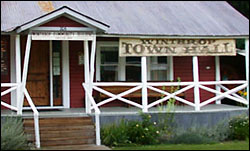 Town Team
Town Team